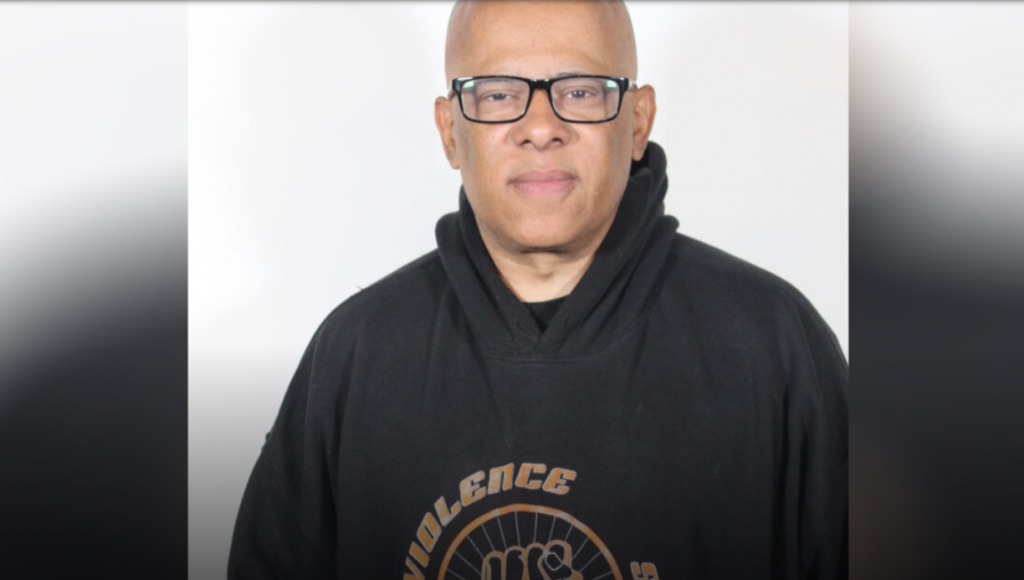“I grew up around gun violence on the South Side of Chicago between the projects of Avalon Park and the Henry Horner Homes. I saw all these young brothers losing their lives in situations that could have easily been avoided or mediated.” 
“I started organizing about 20 years ago because I got tired of seeing all the violence taking place with the young people in my community. That’s why I created the Violence Interrupters. We help people move forward in their lives and show them they don’t have to be a part of gun violence culture.”
“Violence interrupters are selected because of their relationships with the youth population driving the most gun violence in Chicago. The difference is our approach is based in public health.”
“I look at violence like an infectious disease. It transfers from one person to another so that’s why we try to detect then interrupt the transmission.”
“Understand, hurt people hurt other people. When it comes to gun violence, whole communities in Chicago have been traumatized and for many the violence has become the norm.”
“The violence is spreading because this younger segment of the population thinks it’s the only way out for them. They’re willing to go all the way and hurt you, shoot you, kill you, just to secure some type of recognition or credibility in their neighborhood.”
“Around 13-14 is when a lot of young guys begin to make their bones. But they haven’t even matured mentally at that point so hurting somebody else doesn’t even really cross their minds. It’s just an everyday thing in the ghetto.”
“The arrest rate for shootings has always been low because it only takes two or three seconds to actually shoot and kill somebody. And a lot of people won’t talk about it either. They may get shot but they’re not gonna talk about who shot them because that’s part of the culture, too.”
“No one wants to be seen as a person that’s going to tell anybody. But we’re not police informants. We don’t even ask for names. We stay in our lane and try our best to stop the shootings on the front end with mediation and support, so nobody goes to jail or to the cemetery.”
“That’s why we work on changing the thinking. Once we can educate people and help them overcome their own personal traumas, then we can make some real progress.”
“Gun violence has become a culture. It’s past being a fad. It’s traumatic when a young person loses a friend or a loved one to gun violence. And if people don’t have professional support around them, to help them with the healing process, then they end up getting stuck in their feelings. They get stuck and become numb.”
“We help guys think on a higher level, because we can’t change their circumstances, but we can change the way they think in that moment. The main thing after we interrupt the conflict is we make sure to follow up with safety-net type of services for those individuals because otherwise they go back to their lifestyle.”
“Gun violence has become entrenched in the culture with some young people. You always have guys looking to avenge the death of one of their fallen comrades,
and it’s reaching the surface. The violence used to be more targeted at individuals involved in that lifestyle. But now, it’s to the point where anybody could be a victim.”
“We need all-hands-on-deck and if we work together, I believe we can achieve some serious reductions in gun violence in Chicago. Homicides were down 13% in 2023. In 2024, I think we should have a goal of reducing homicides by 25%.”
“Then we can help more of these young guys become productive members of society and avoid getting caught up in this vicious cycle of violence.”
Tio Hardiman
Founder, executive director, Violence Interrupters Inc.
Chicago, Illinois
